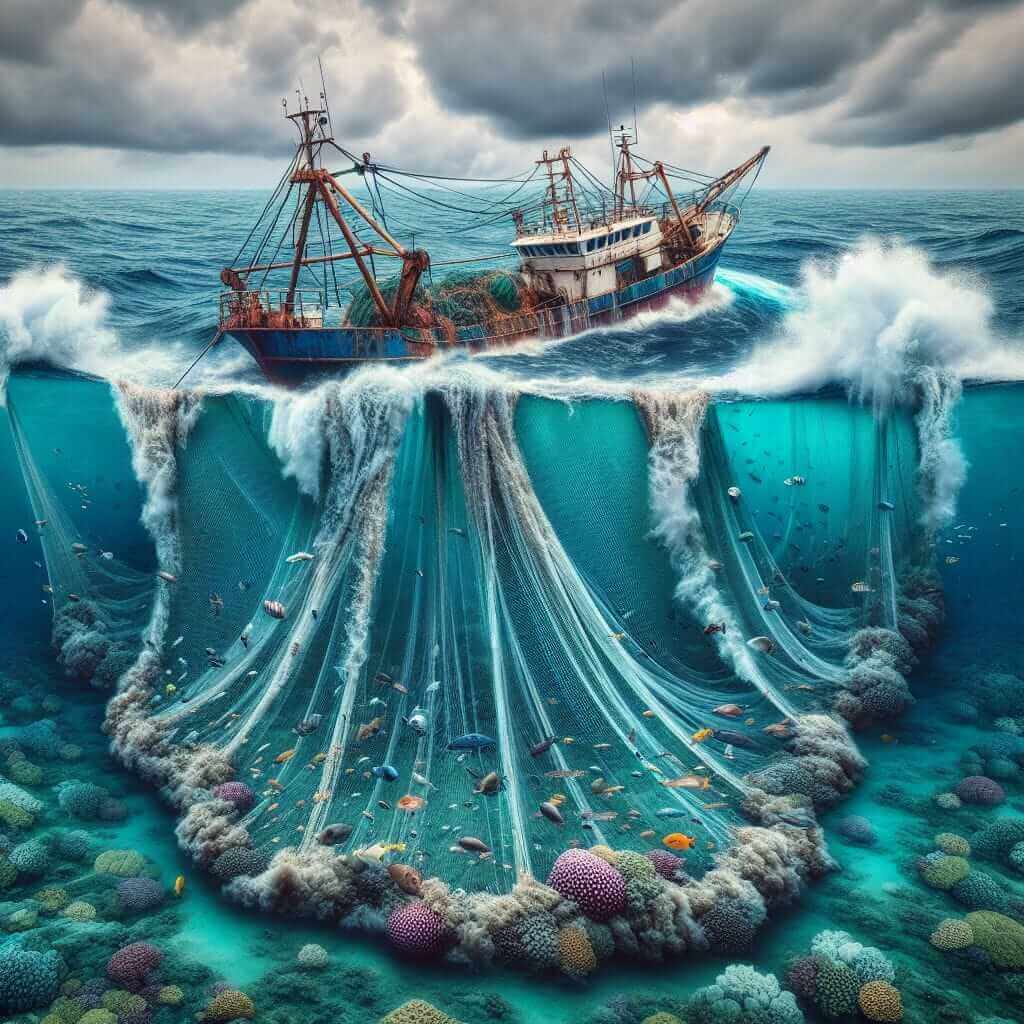Overfishing, a pressing environmental issue, frequently surfaces in IELTS Writing Task 2, urging test-takers to explore its multifaceted consequences. This article delves into the detrimental effects of overfishing on marine biodiversity, providing valuable insights for crafting a stellar IELTS essay. We’ll analyze a sample question, dissect its nuances, and craft a band-8 worthy response, equipping you with essential vocabulary and grammatical structures to ace your exam.
Sample IELTS Writing Task 2 Questions
Here are some potential IELTS Writing Task 2 questions related to overfishing and marine biodiversity:
- Overfishing is one of the biggest threats to the health of our oceans. What are the effects of overfishing on marine biodiversity? What measures can be taken to address this problem?
- Some people argue that fishing should be banned altogether to protect marine life. To what extent do you agree or disagree?
- Discuss the environmental and economic consequences of overfishing and suggest ways to promote sustainable fishing practices.
Sample Essay Analysis
Let’s delve into a detailed analysis of a sample essay question:
“Overfishing is one of the biggest threats to the health of our oceans. What are the effects of overfishing on marine biodiversity? What measures can be taken to address this problem?”
Essay Analysis
This question presents a classic problem-solution structure:
- Identify the problem: Overfishing and its impact on marine biodiversity.
- Propose solutions: Measures to mitigate the adverse effects of overfishing.
Model Essay
Overfishing, the relentless removal of marine species at rates exceeding their natural replenishment, poses a grave threat to the delicate balance of our oceans. This essay will delve into the detrimental effects of overfishing on marine biodiversity and propose viable solutions to mitigate this pressing issue.
One of the most alarming consequences of overfishing is the depletion of fish stocks. As fishing vessels relentlessly pursue commercially valuable species, populations plummet, disrupting the intricate food web. For instance, the overfishing of cod in the North Atlantic Ocean not only decimated cod populations but also triggered a cascade effect, leading to an explosion of prey species and imbalances in the ecosystem.
Furthermore, overfishing disrupts marine habitats and threatens biodiversity. Bottom trawling, a common fishing practice that involves dragging weighted nets across the ocean floor, inflicts significant damage on coral reefs, seamounts, and other vital ecosystems. This destruction not only obliterates habitats for countless marine organisms but also reduces the ocean’s resilience to climate change and pollution.
<
Addressing this multifaceted challenge requires a multi-pronged approach. Implementing strict fishing quotas, based on scientific assessments of fish stocks, is crucial to prevent overexploitation. Marine protected areas, where fishing is restricted or prohibited, can provide safe havens for marine life to recover and thrive. Furthermore, promoting sustainable fishing practices, such as using selective fishing gear that minimizes bycatch, is essential to reduce unintended harm to non-target species.
In conclusion, overfishing has devastating consequences for marine biodiversity, disrupting ecosystems and depleting fish populations. By implementing stringent regulations, establishing marine protected areas, and promoting sustainable fishing practices, we can mitigate this critical issue and safeguard the health of our oceans for generations to come. (Word Count: 285)
Writing Tips
- Structure: Follow a clear problem-solution structure, dedicating one body paragraph to outlining the effects and another to suggesting solutions.
- Vocabulary: Employ precise vocabulary related to marine life, such as “fish stocks,” “food web,” “bottom trawling,” and “bycatch.”
- Examples: Support your arguments with relevant examples, like the North Atlantic cod case, to enhance clarity and engagement.
- Grammar: Use a variety of sentence structures, including complex sentences and conditional clauses, to demonstrate grammatical range and accuracy.
Vocabulary Builder
- Depletion (noun /dɪˈpliːʃən/): Reduction in the number or quantity of something.
- Food web (noun /ˈfuːd wɛb/): A system of interlocking and interdependent food chains.
- Bottom trawling (noun /ˈbɒtəm ˈtrɔːlɪŋ/): A fishing method that involves dragging a net along the seabed.
- Resilience (noun /rɪˈzɪliəns/): The capacity to recover quickly from difficulties.
- Bycatch (noun /ˈbaɪkætʃ/): The unintentional catch of nontarget species while fishing.
Conclusion
Mastering the art of writing about complex environmental issues like overfishing is essential for achieving a high band score in the IELTS Writing Task 2. By following the strategies outlined in this article—understanding the question, structuring your essay effectively, employing relevant vocabulary, and providing compelling examples—you’ll be well-equipped to tackle any IELTS question related to overfishing and marine biodiversity.